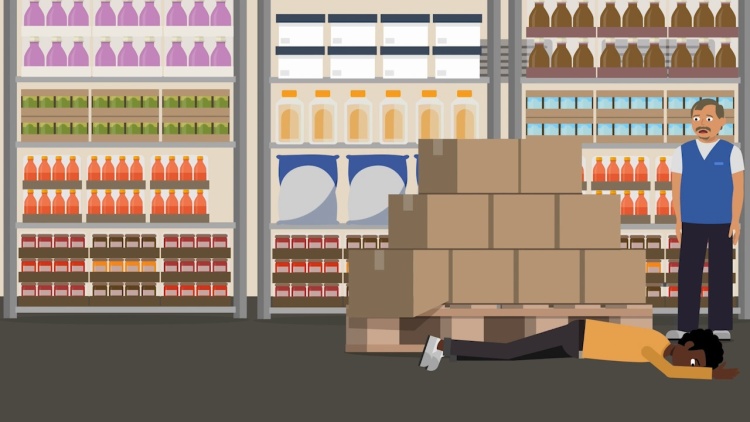Foster v. Costco Wholesale Corp.
Nevada Supreme Court
291 P.3d 150 (2012)
- Written by Craig Conway, LLM
Facts
During a trip to a Costco membership warehouse store, Stephen Foster (plaintiff) tripped after his toe caught the corner of a wooden pallet, fell, and sustained injuries. Foster filed suit against Costco Wholesale Corporation (Costco) (defendant) for negligence and for specifically creating a dangerous condition and failing to warn him of the condition’s existence. During a deposition, Foster testified that as he entered an aisle at Costco he observed several pallets on either side of the aisle’s entryway. Foster stated that all of the pallets contained stacked boxes and that as he looked up at the displayed products on the shelves he believed he had stepped around a pallet but that a partially-overturned box had obscured the edge of the pallet from view. Foster alleged that his toe caught the edge of the pallet’s corner and he fell. Costco moved for summary judgment arguing that the pallet was an open and obvious danger. In opposing the motion, Foster argued that even though he could see some of the pallet underneath the boxes he was unable to see the corner of the pallet due to the way the overturned box was positioned. Thus, Foster claimed that even if the condition was obvious there were still material questions regarding whether Costco was liable for creating or subjecting Foster to the peril. The trial court agreed with Costco and awarded the company summary judgment. Foster appealed.
Rule of Law
Issue
Holding and Reasoning (Cherry, C.J.)
What to do next…
Here's why 907,000 law students have relied on our case briefs:
- Written by law professors and practitioners, not other law students. 47,100 briefs, keyed to 996 casebooks. Top-notch customer support.
- The right amount of information, includes the facts, issues, rule of law, holding and reasoning, and any concurrences and dissents.
- Access in your classes, works on your mobile and tablet. Massive library of related video lessons and high quality multiple-choice questions.
- Easy to use, uniform format for every case brief. Written in plain English, not in legalese. Our briefs summarize and simplify; they don’t just repeat the court’s language.





